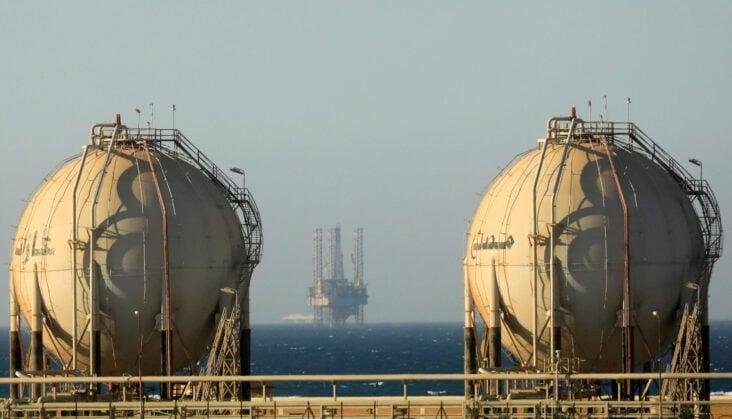By Sheila Khama
Africa-Press – Mauritius. Recent developments in Europe show that for the rich industrial world, the quest to decarbonise their economies has been relegated to second place behind the geopolitics of energy security.
Last year, at COP26 in Glasgow, the EU and the US were adamant that coal was enemy number one. Everything changed after Moscow launched its war on Ukraine and Western states hit back with sanctions.
As soon as Russia threatened to cut gas supplies to Germany, politicians there and in other European nations recommissioned thermal power stations to boost their national grids
Coal sales from South Africa to Europe rose eightfold during the first six months of 2022 compared with last year. Despite this U-turn, there has not been any significant fallout between governments, industry and civil society in Germany or other European states.
Robert Habeck, a politician in Germany’s pro-environment Green Party, said the decision was “. . . bitter, but the situation just makes it necessary,” adding that it would lead to “slightly higher” emissions.
Initially, the Green Party had signed up for a coalition that planned to phase out nuclear energy by the end of 2022 and coal by 2030. Germany’s nuclear energy industry has also been given a shot in the arm, as have some of Africa’s uranium producers.
According to the head of the International Energy Agency, (IEA), “Japan’s restart of nuclear reactors will help Europe’s winter energy supply”. Sweden’s decision to follow the Japanese lead looks to have been inspired by the same market opportunities and geopolitical interests.
What can we take from this as a guiding principle to negotiations at the COP27 in Sharm El-Sheikh this month? African governments should come to grips with the fact that the EU’s short and medium-term geopolitical goals count for much more than the 1.5 Celsius ‘North Star’ – that is the goal of keeping average global temperatures to less than 1.5C above pre-industrial levels.
African leaders would do well to be equally pragmatic and overlook science-at least for now. European states’ interim goals for protecting national economies and political parties take priority at the climate summits over rhetorical exhortations to save the environment.
Despite the adverse environmental impacts of the switch back to coal, many European governments changed their energy mix overnight. The notion that global warming poses an existential threat cannot be something that European politicians really believe – in light of the decisions they made when it came to choosing coal over nuclear power.
African leaders would do well to be equally pragmatic and overlook science-at least for now. Look at the implications of the recent crude oil price uptick on debates on decarbonisation and how it shifted policy priorities and corporate strategy across the globe.
Oil prices had been rising prior to the Ukraine war, but the war pushed them as high as $130 a barrel during the first quarter of 2022. That delivered massive profits for oil producers and boosted revenues enabling governments and companies to invest in renewables.
However, the higher prices increased inflation because their impact wasn’t confined to crude oil by-products, but also raised transport costs, pushing up the price of goods and services across the world.
As host to many of the world’s poorest people, Africa will bear the brunt of the adverse effects. How did governments in the Global North react? In Britain and the EU, lawmakers begrudged international oil companies their massive profits and demanded a share of the spoils through windfall taxes.
In the US, President Joe Biden called upon oil producers in and outside the US to ramp up production to bring down gasoline prices, but the response was lukewarm.
Writing to the big oil companies he argued that “. . . . at a time of war, refinery profit margins well above normal being passed directly onto American families are not acceptable”. An insightful and even more self-serving response came from the Saudi Arabian oil giant Aramco.
The Kingdom was not content with higher prices so tried to profit further by buying crude cheaply from Russia (thanks to Western sanctions) while selling its own crude exports at market prices and pocketing the difference. Unsurprisingly, Saudi Arabia had no appetite to indulge the wishes of the White House that it should boost production to bring down world prices.
Having been at the receiving end of investor activism, NGOs and policymakers’ pressure, big oil companies have finally heeded the call and are using profits to invest hugely in investments in R&D technology for clean energy or takeover of renewable energy startups.
In June, the London Financial Timers said: “BP takes 40% stake in [a] vast $30bn Australian renewables project”. According to Reuters, “Chevron Corp bought biodiesel maker Renewable Energy Group Inc for $3.15bn, in its biggest bet so far on alternative fuels”.
For its part, Shell plc apparently “. . . plans to spend up to $3bn a year on renewables and ‘energy solutions’, out of a total of up to $23bn of total near-term annual investments”.
These developments offer interesting insights, a few stand out specifically in relation to African governments caught up in the changing landscape of climate summits and the transition to clean energy.
The first is the importance of resisting the temptation to align with the diplomatic, political and trade interests of the world’s economic blocs. Africa would be better served by retaining its independence and profiting from the ever-changing geopolitical dynamic.
International oil companies may be divesting from fossil fuels in the long term, but if the level of investment being made in renewables is anything to go by, the companies will remain a force to reckon with in the energy industries for a long time.
Now is the time to seek out companies invested in Africa and negotiate exit strategies that include investing in renewables. The window of opportunity for state-owned enterprises to partner with oil companies for mega projects will close and warrants a speedy response.
It has been said before but it is worth reminding regional governments to invest in windfall revenue rather than treat it as part of regular income. African countries should play to their strengths while demonstrating a value proposition beyond supply of raw materials.
There is no better place to invest these funds than in climate adaptation initiatives rather than wait for third-party pledges that are unlikely to materialise.
The same principles apply to countries that are well endowed with minerals that are critical for the transition to clean energy albeit to a lesser degree they too are benefiting from demand and supply growth.
Countries must leverage their advantages as these align with national and regional interests. Equally, thought must be given to ways to attract investment in energy transition-related ventures.
African countries should play to their strengths while demonstrating a value proposition beyond the supply of raw materials. If governments dig their heels in and play to the gallery with post-colonial rhetoric rather than being pragmatic, investors will perceive risk and the region will lose out.
This is a delicate balance that calls for a win-win rather than the winner takes all mindset that is politically unpalatable. Pragmatism and a long-haul view should be the name of the game.
The biggest lesson from the actions of those in the Global North is that in the final analysis, it was not the health of the environment that tipped the scale, but rather the well-being of their citizens and the quest for survival of those in political power.
On 18 October 2022, President Biden announced that “he is releasing 15 million more barrels of fuel from the Strategic Petroleum Reserve, a move aimed at easing gas prices less than three weeks before the mid-terms”.
In May, German Chancellor Olaf Scholz toured African countries to negotiate the supply of fossil fuels. From these actions, the message cannot be clearer, “the environment can wait”.
At COP27, African countries must consider the implications of these developments on their interests. A collective strategy for engaging the world based on enlightened self-interest is a good starting point.
Mindful that business will be conducted based on national trade and investment environments, it is important that African governments adopt common rules of engagement in dealing with the rest of the world. The goal must be to chart the region’s own path.
The guiding principles should include avoidance of a race to the bottom, mitigation of risk of redundant fossil fuel assets, ability to leverage energy transition-related industrial boom and the region’s wealth of critical minerals by attracting investment in related industries.
This means taking an introspective look at the region’s capacity and therefore competitiveness. Accepting that trade in some areas must migrate to other regions of the world despite Africa’s contribution to the raw material value chains and carbon sinks will be a painful but inevitable pill to swallow.
The North has lost moral authority and there is a vacuum for Africa to occupy However, it will lower entry barriers and open the door for incremental growth and confidence building as the world ramps up industries necessary for the transition to clean energy.
In this respect, Africa is not alone as investors and capital shop around for a home. What African leaders cannot do at COP27 is adopt a business-as-usual approach.
On climate, the North has lost moral authority and there is a vacuum for Africa to occupy if the region wishes. As with the rest of the world, Africa’s citizens must come first, and the environment can and must wait.
https://www.theafricareport.com/259791/should-africa-put-citizens-above-the-climate-crisis/
For More News And Analysis About Mauritius Follow Africa-Press







